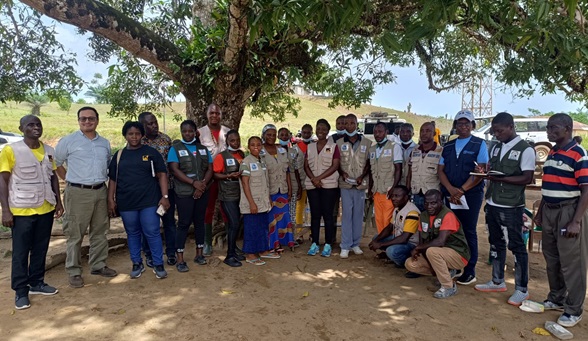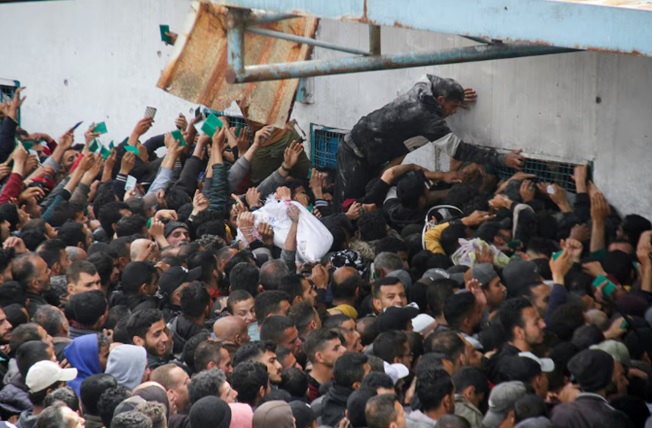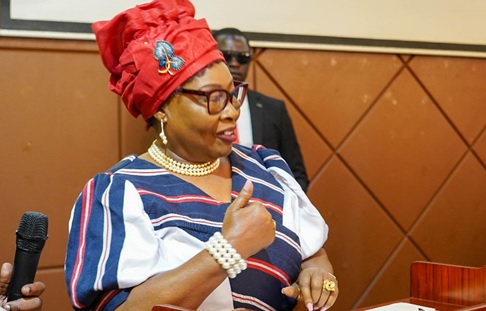MONROVIA – A joint delegation led by the Food and Agriculture Organization of the United Nations Representative madam Bintia Stephen Tchicaya, in partnership with USAID, the International Rescue Committee (IRC), and Break Through Action (BA), recently conducted a thorough assessment in the southeastern region of Liberia.
The mission, spanning nine days, aimed to evaluate progress and address critical challenges encountered by farmers and animal health workers in the area.
During the visit, various villages, towns, and crucial sites such as poultry farms and slaughter slabs were inspected, complemented by meetings with community health workers (CHAWs) across different locations. Noteworthy interactions took place at the agriculture college of William V.S. Tubman University in Harper, Maryland County, emphasizing knowledge exchange and capacity-building.
The team, consisting of representatives like Mrs. Delou Gonsan-Zeo, Hannax Barlue (IRC), Mr. Armando Cotrina (USAID), Madam Sabenzia Wekesa (FAO/ECTAD), Mr. Patrick Sibney (Ministry of Agriculture), and Mr. Archie Sesay (BA), embarked on a comprehensive itinerary that included visits to various livestock facilities and educational institutions.
Key highlights of the mission included engagement with students at Gbeapo Multilateral High School in Rivergee County to raise awareness about diseases like rabies, as well as meetings with Community Health Teams (CHT) in Grand Kru County to promote health initiatives. The team’s visit culminated in Werteken, Grand Kru County, marking the successful conclusion of their fact-finding mission.
The collaborative efforts showcased a commitment to enhancing agricultural practices, improving animal health protocols, and bolstering community health initiatives in Liberia’s southeastern region.
Speaking at one of the gatherings with CHAWS in Fishtown, Rivergee County FAO Representative Mrs. Tchicaya lauded the efforts of the CHAWs and called on them to be more collaborative in addressing health issues in their respective areas of assignment.
She said, FAO as a technical institution would continue to provide the needed support that complement efforts that are driven towards fighting diseases which affects both humans and animals.
“We are happy to know that you are making efforts to fight diseases that undermine both the human and animal population. This shows that the one health platform is strengthen and would do more with the needed support. The FAO remains a true partner to this endeavor” The FAO Representative averred.
Madam Tchicaya also encourage farmers and community animal health workers to see the need to remain committed to the work they do, emphasizing FAO’s continuous support to address challenges in animals disease prevention and building farmers capacity.
For his part, Mr. Armando Cotrina who represented USAID on the mission, praised community health workers for their resilience and echoed his institution continuous support toward initiatives that promotes disease prevention between animal and human, and also improve agriculture.
“The sharing of information between animal health workers in the field and those who are more concern on human health issues is laudable, but there is still a need for cooperation between the two. More collaboration is needed to track and monitor health issues that are not just unique to humans but animals as well, for swift reporting purposes,” Mr. Cotrina intimated.
The partnership between different organizations underscores the importance of working together towards sustainable development and strengthening resilience among rural communities.







